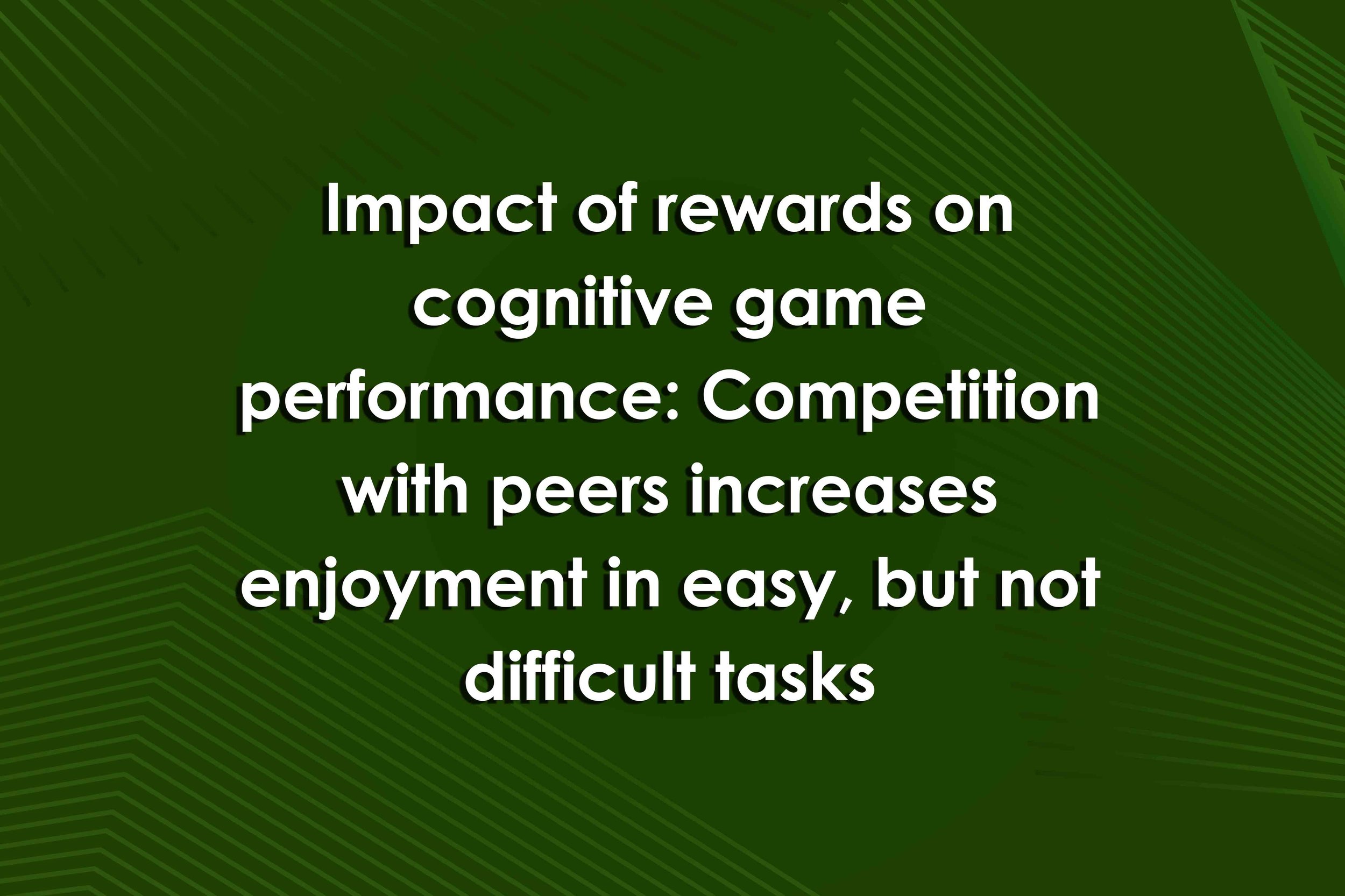Impact of rewards on cognitive game performance: Competition with peers increases enjoyment in easy, but not difficult tasks
Impact of rewards on cognitive game performance: Competition with peers increases enjoyment in easy, but not difficult tasks
Impact of rewards on cognitive game performance: Competition with peers increases enjoyment in easy, but not difficult tasks
You Zhi Hu, Hsi T. Wei, Mark Chignell
Abstract
"Gamification has been widely used in non-gaming contexts to motivate participants to actively engage in tasks. However, game difficulty can alter the efficacy of different motivational elements (e.g., rewards, feedback, and leaderboards). To examine the relationship between game difficulty and participant motivation, we report findings from two studies (N > 400 for the two studies combined) on gamified assessments for cognitive executive functions. In each study, the same set of five different reward conditions are compared in a between- subjects design. The studies used cognitive tasks, implemented as modified Whack-A-Mole games, where students had to make a cognitively defined (e.g., working memory, or response inhibition) distinction between target (to be hit) and distractor (not to be hit) characters (moles). Response time and accuracy were collected along with rated game enjoyment and motivation. Overall, Leaderboard was the most enjoyable reward condition. The Within-subject Comparison condition provided self-comparison feedback and led to stable performance over time. A key result was that peer competition motivated better performance in easy, but not difficult tasks."
Reference
Hu, Y. Z., Wei, H. T., & Chignell, M. (2023). Impact of rewards on cognitive game performance: Competition with peers increases enjoyment in easy, but not difficult tasks. Learning and Individual Differences, 100, 1-9. https://www.sciencedirect.com/science/article/abs/pii/S0747563223003035
Keywords
Gamification, Human-computer interface, Serious games

